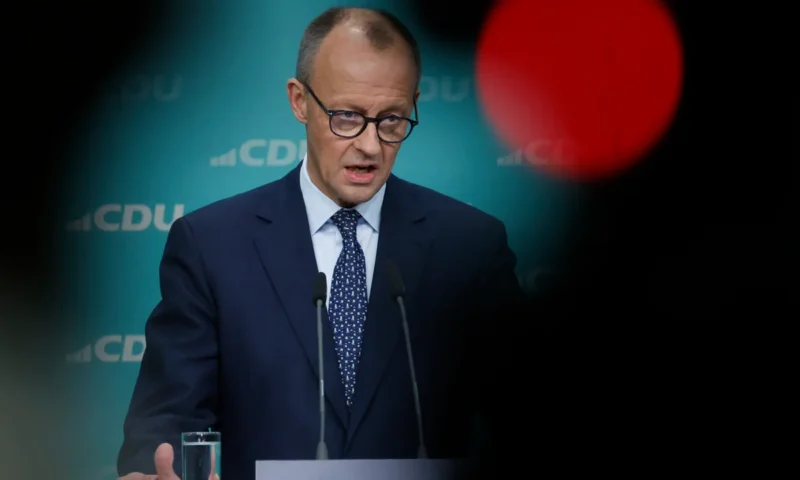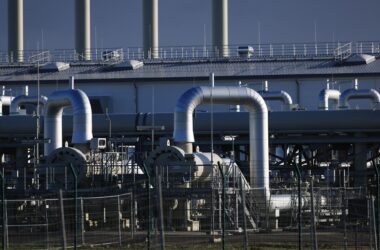German Chancellor Friedrich Merz has taken a firm stance to prevent the reopening of the Nord Stream gas pipelines connecting Russia and Germany, signaling EU talks on imposing sanctions against the project, Financial Times reports. His efforts come amid concerns over potential cooperation between Moscow and Washington in the gas sector.
Merz’s government recently approved a new package of anti-Russian sanctions linked to the ongoing war in Ukraine. According to three officials familiar with the situation, the chancellor is actively trying to block any discussions about resuming pipeline operations.
One insider confirmed Financial Times reports that representatives of Russian and American businesses have begun talks on restoring the Nord Stream pipelines. In response, Merz has ordered consultations in Berlin and Brussels aimed solely at preventing such cooperation.
Officials suggest that if Nord Stream is added to the EU sanctions list, the pipeline will effectively “cease to be a political problem.”
Another reliable source indicated that Merz’s sanctions serve mainly economic interests. Adding the pipeline to the sanctions list will “Europeanize” its fate, relieving Berlin of much of the responsibility. This, in turn, could make it easier for Germany to resist economic pressure from both the US and Russia.
Currently, Berlin lacks direct state control over any of the four pipeline branches after explosions damaged three in 2022. However, Germany retains the power to activate any pipeline by issuing the required certifications independently.
Sources close to EU officials revealed to FT that the new restrictions would target Nord Stream 2 AG, a Swiss company managing the pipelines, as well as Russian and other firms involved in pipeline operations. European Commission President Ursula von der Leyen mentioned Nord Stream as part of a “new sanctions package” under development and reportedly consulted Merz for approval beforehand.
Discussions on the updated sanctions were scheduled to start this week, with final approval requiring unanimous consent from all EU member states.
The Nord Stream project was originally developed under former Chancellor Gerhard Schröder, known for his close ties with Vladimir Putin and collaboration with Kremlin-controlled Gazprom, symbolizing deep energy links between Russia and Germany.
Even before Russia’s 2022 invasion of Ukraine, Berlin and Washington clashed over these ties. The Trump administration urged then-Chancellor Angela Merkel to reduce Germany’s reliance on Russian energy.
Sources involved in negotiations said former Stasi spy and Putin ally Matthias Warnig engaged with American investors to restart the pipelines, potentially leveraging former President Trump’s interest in improving US-Russia relations.
A government representative said, “A correct step that Chancellor Merz actively supports sanctions against Nord Stream 2. One of our main goals is to deprive Russia of any sources of income to finance its military as long as aggression against Ukraine continues in violation of all international laws. This includes revenues from fossil fuel exports.”
The debate over Nord Stream has intensified in Germany, especially as Russian gas made up more than half of the country’s energy imports by early 2022.
Polling by the Forsa institute in Mecklenburg-Vorpommern—the pipeline’s end point near Lubmin—showed about 49% of residents favor the immediate resumption of Russian gas deliveries.
The right-wing Alternative for Germany (AfD), which garnered over 20% in recent elections, also advocates restoring Russian gas supplies, citing high energy costs and economic stagnation.
Similar views are held by some business leaders and politicians from Chancellor Merz’s Christian Democratic Union (CDU), as well as coalition partners the Social Democrats. The Green Party has criticized the ruling majority for trying to maintain “Moscow ties.”
In March, Saxony’s CDU Prime Minister Michael Kretschmer said, “the continuation of sanctions against Moscow is completely outdated and does not correspond to what the Americans are doing right now.”
Responding to FT and other Nord Stream reports, CDU deputy Thomas Bareiß praised “the businesslike approach demonstrated by our American friends” in a LinkedIn post.
Dietmar Woidke, Brandenburg’s Social Democrat Prime Minister, called for the normalization of all German trade and economic relations with Moscow immediately after a peace agreement with Ukraine is reached.




